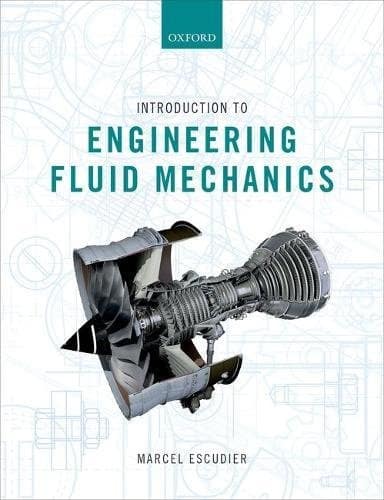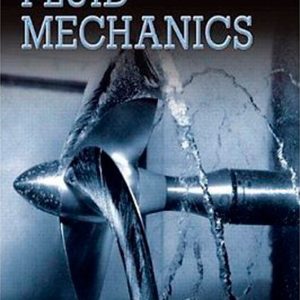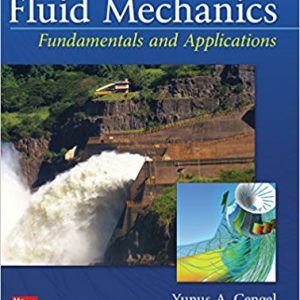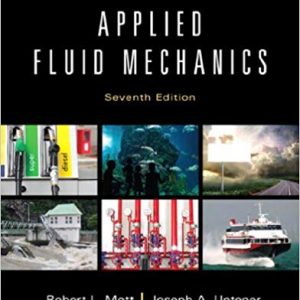We inhabit a world of fluids, including water (a liquid), steam (vapour), air (a gas), and the numerous synthetic and natural fluids which are essential to modern-day life. Fluid mechanics concerns the way fluids flow in response to imposed stresses. The subject plays a central role in the education of students of mechanical engineering, as well as chemical engineers, aeronautical and aerospace engineers, and civil engineers. This etextbook (Introduction to Engineering Fluid Mechanics by Marcel Escudier) in PDF, includes numerous examples of practical applications of the theoretical ideas presented, such as calculating the thrust of a jet engine, the shock- and expansion-wave patterns for supersonic flow over a diamond-shaped aerofoil, the power output of a gas turbine, and the forces created by liquid flow through a pipe bend and/or junction
The first 10 chapters of the book are suitable for1st-year undergraduates. The latter half covers material suitable for fluid-mechanics courses for upper-level college students Although knowledge of calculus is essential, this book focuses on the underlying physics. The book emphasizes the role of dimensions and dimensional analysis, and includes more material on the flow of non-Newtonian liquids than is usual in a general book on fluid mechanics — a reminder that the majority of synthetic liquids are non-Newtonian in character.
About the Author
Marcel Escudier is Emeritus Harrison Professor of Mechanical Engineering at the University of Liverpool. From 1974 until 1986 he was Gruppenleiter fur Stromungsmechanik at the Brown, Boveri Research Centre in Switzerland and then joined Schlumberger Cambridge Research in the UK as Head of the Fluid Mechanics Department. He has published research papers (about sixty in total) on turbulent boundary layers,vortex breakdown, burning plumes, and the flow of non-Newtonian liquids. He was elected a Fellow of the Royal Academy of Engineering in 2000.






Reviews
There are no reviews yet.